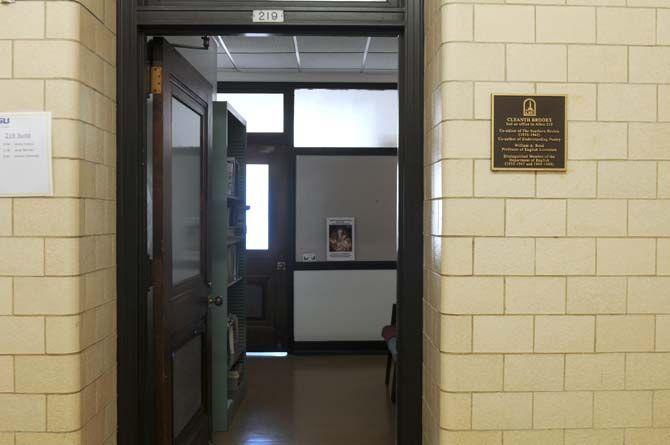Although it is seldom discussed outside of English classes, in the first half of the 20th century LSU boasted an impressive group of literary figures among its faculty and student body. Three-time Pulitzer winner Robert Penn Warren was chief among them as a professor and founder/editor of LSU’s highly-acclaimed literary magazine, The Southern Review.
In 2012, English instructor Nolde Alexius and former English professor Judy Kahn wrote The Southern Review’s “Best of LSU Fiction” to pay homage to the University’s literary legends. The edition is partly biographical and partly an anthology of stories by the most prolific writers to attend, teach or edit in some capacity here at the University, including Warren.
“We whittled a huge list down to 20 people and presented LSU’s literary history. We started with Robert Penn Warren and then covered his most successful graduate students, among others,” Alexius said.
In the 1930s, Louisiana Gov. Huey P. Long heavily increased funding for higher education, partly in an attempt to bolster his name and chances for a presidential bid. The funding helped attract Warren to the University in 1933. By 1935, he founded The Southern Review with Cleanth Brooks.
The Southern Review was renowned across the country for its publications, Alexius said.
“It was the first to publish Eudora Wealty (who later won a Pulitzer in fiction for “The Optimist’s Daughter”), and led to F. Scott Fitzgerald (“The Great Gatsby,” “This Side of Paradise”) referring to Baton Rouge as ‘the Athens of the nation.’”
Time Magazine also labeled The Southern Review as “superior to any other journal in the English language.”
Warren’s prestige attracted young talent that would go on to make big names for themselves in the literary scene. Robert Lowell (“For the Union Dead,” “Lord Weary’s Castle”) and Peter Taylor (“A Summons to Memphis”) both attended the University to study with Warren and went on to win Pulitzers.
Lowell’s wife, Pulitzer Prize-winner Jean Stafford, also attended the University, where she worked for The Southern Review. However, she saw far less interaction with Warren than her male peers and was relegated to copy-editing in the basement of Allen Hall.
“But, all at once, you had all the bright stars of American literature all together here in Allen Hall,” Alexius said.
Aside from a prolific journal and a supergroup of literary heavyweights, Alexius said Warren and his colleagues allowed for the University to become home to the inception of modern English pedagogy that would come to be known as New Criticism. New Criticism involves looking at literature in terms of its form, or structure.
“When you’re choosing classes at LSU you get to decide between a gen-ed course based on fiction, poetry or drama,” Alexius said. “That wouldn’t be the case if they hadn’t developed the idea of teaching by looking at a piece of literature through its form. That’s a lasting impact, and it started here in Allen Hall.”
Warren stayed at the University for nine years, until 1942, leaving for the University of Minnesota after his salary and funding for the The Southern Review became issues. Three years after his departure he wrote his most enduring work, “All the King’s Men,” which borrowed heavily from his observations of Huey P. Long during his time in Baton Rouge.
‘It started here in Allen Hall’: LSU boasts rich literary history, prominent literary figures
October 29, 2019
Allen Hall is where Robert Penn Warren had his office and wrote part of “All The King’s Men.” His office was a room that no longer exists in Allen Hall, room 156.





